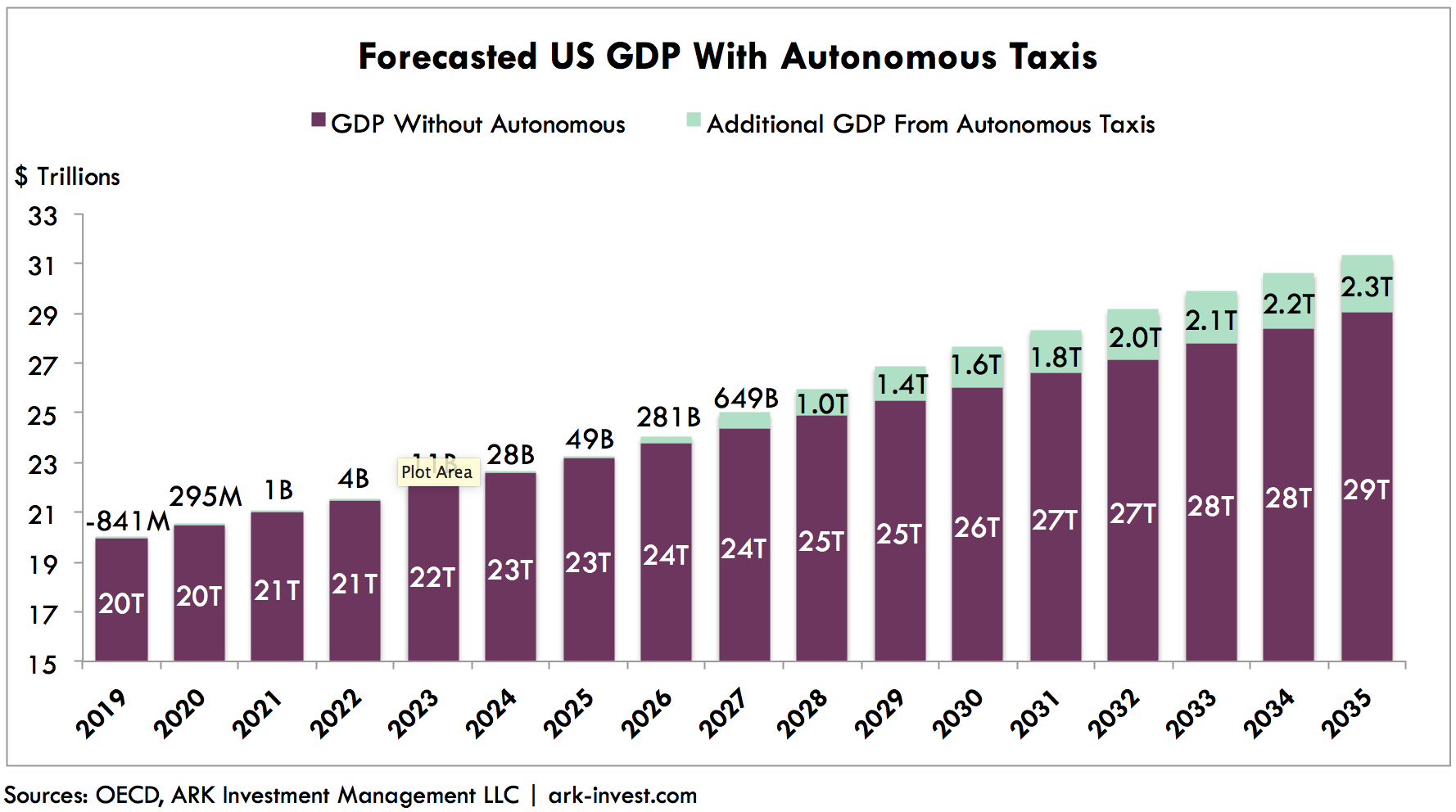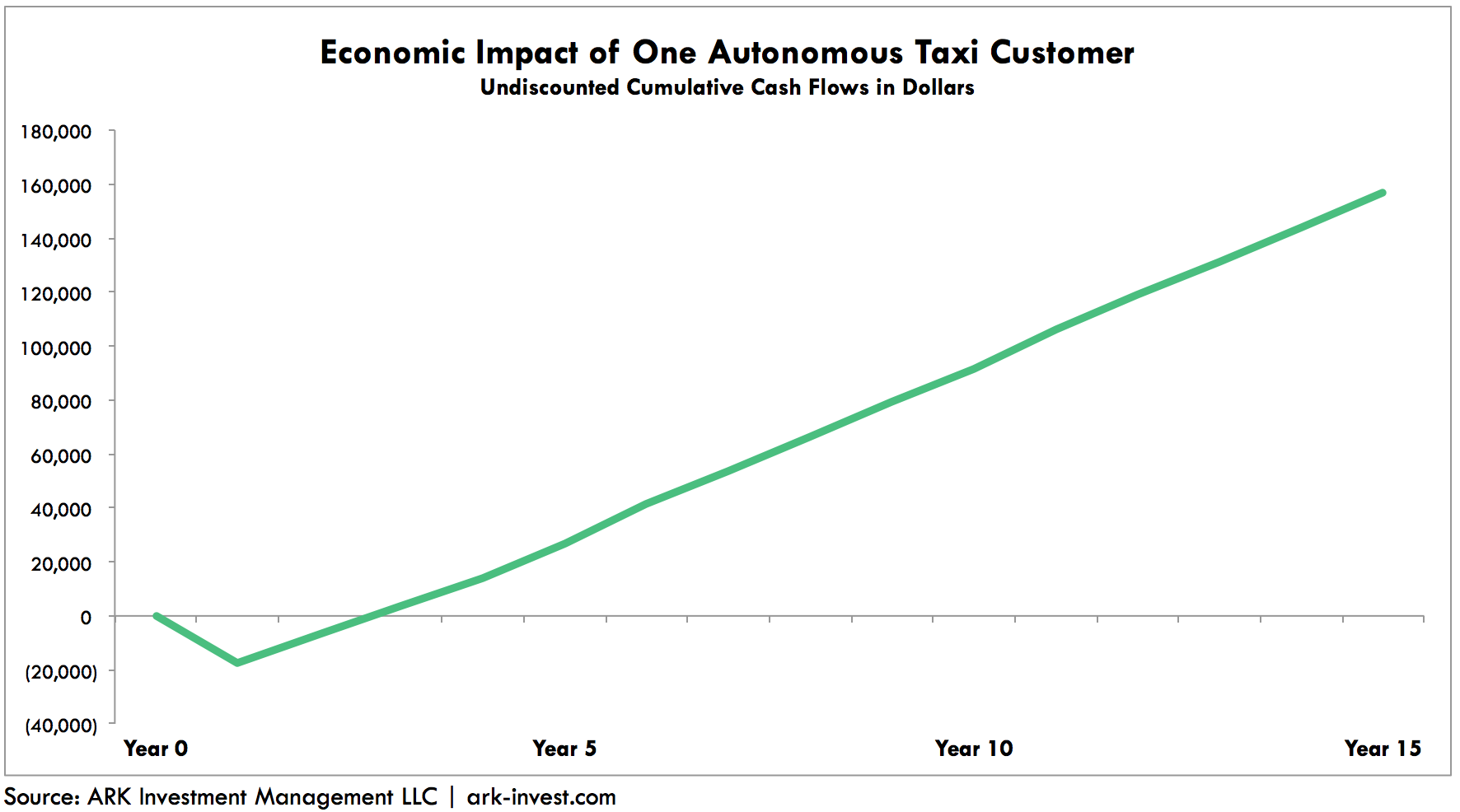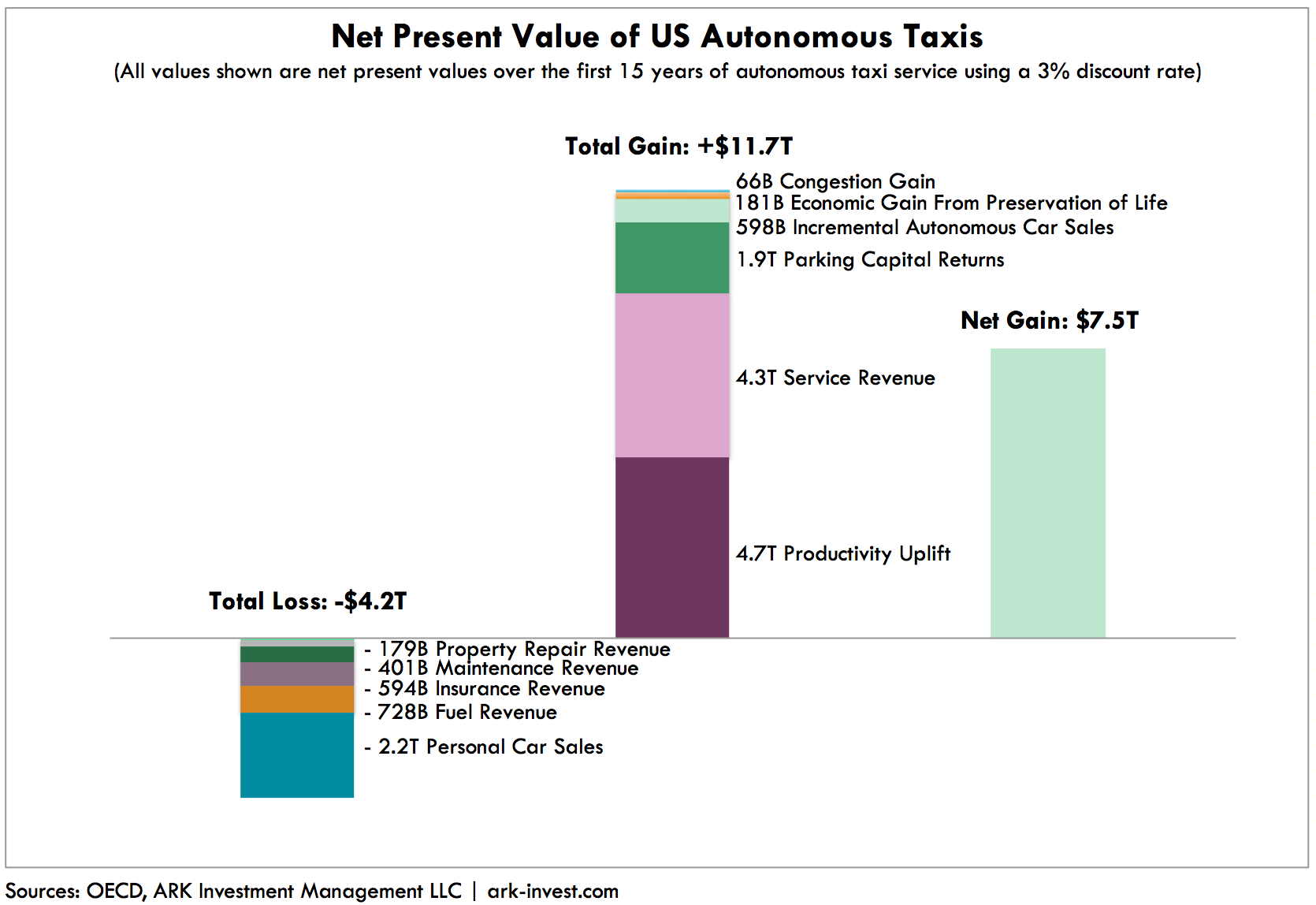
Note: ARK has updated this blog from its original publication on 10/27/16 to include a revised forecast for economic impact.
Given the macroeconomic importance of auto production in the US, losing auto sales would seem to be terrible economic news. Not so. Yes, in the year that the consumer decides not to purchase a personal vehicle, the economic impact will be net-negative, but in each subsequent year that decision will generate an economic surplus. In total ARK’s research demonstrates that autonomous taxis could add roughly $2.3 trillion to annual economic output by 2035, as shown below.

To illustrate this economic benefit, imagine a person decides not to buy a car and instead starts to use an autonomous taxi service from Google, Uber, or Tesla [TSLA]. In the first year, there will be a net economic loss from the forgone auto sale, as shown below.[1]

The lost car sale will be offset partially by the following factors, pushing the cumulative economic impact positive within 3 years:
- a significant productivity boost as drive time—previously a non-market labor task for which the consumer received no compensation—shifts to leisure or compensated work time;
- service revenue from, and sales of, autonomous taxis;
- capital returns as unnecessary and unused parking spaces convert to offices, retail stores, or residences;[2]
- a reduction in the $28 billion of annual costs associated with traffic congestion from car accidents, not to mention lives saved as the accident rate drops by 80%.[3]
According to ARK’s research, these benefits will offset the lost revenue from gasoline and insurance sales, as well as the medical and repair costs associated with car accidents every year. The net present value of the economic impact over 15 years associated with every driver in the US who forgoes buying a personal and instead rides in an autonomous taxi is roughly $120,000.[4] Incorporating expectations for the cumulative number of passengers that will enter the market as a result of autonomous accessibility, the net present value of the economic impact over the first 15 years will amount to roughly $7.5 trillion [5] in the US, as shown below.

Consumers will likely benefit from a shift to autonomous taxis in other ways as well. Driving a personal car costs roughly 70 cents per mile today. According to ARK’s research, autonomous taxis could charge roughly half that cost, saving on average $4,700 per driver per year.[6] Moreover, while ordering an autonomous taxi on a mobile app and sitting in the backseat catching up on work or watching Netflix (NFLX), consumers should enjoy more convenience, productivity, and down time, not to mention safety.

 Actively Managed Equity
Actively Managed Equity Overview: All Strategies
Overview: All Strategies Investor Resources
Investor Resources Indexed Equity
Indexed Equity Private Equity
Private Equity Digital Assets
Digital Assets Invest In The Future Today
Invest In The Future Today
 Take Advantage Of Market Inefficiencies
Take Advantage Of Market Inefficiencies
 Make The World A Better Place
Make The World A Better Place
 Articles
Articles Podcasts
Podcasts White Papers
White Papers Newsletters
Newsletters Videos
Videos Big Ideas 2024
Big Ideas 2024



